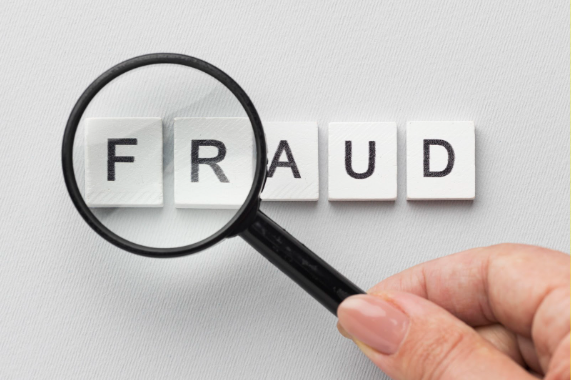
How to Identify and Avoid Financial Frauds
It’s a digital world, as we are all aware. Everything is online, almost everything can be done online. You can carry out transactions for years without having to step your feet in a bank. You can call up your bank to get issues resolved. The good thing about this is that, it gives ease and convenience, however, it comes with a peculiar challenge. People get scammed and lose their hard-earned money to internet fraudsters. From emails that sound or look like your bank, to mouth-watering investment opportunities that are too good to be true, scammers are using every smart way to rob people online. But don’t worry, you can also outsmart them and beat them at their games. This blog will show you how to identify and avoid financial fraud.
What is Financial Fraud?
Financial fraud is a smart yet deceptive way of getting money from someone through a transaction. It’s a broad term that covers a range of illegal acts in financial transactions. Financial fraud can also be said to be about someone taking advantage of another person’s trust to rob them of their money. Let’s take a look at the different ways scammers engage in financial fraud.
Different Types of Financial Fraud
Financial fraud comes in different shapes and sizes, each with a unique way of operation. One of them is identity theft, which means someone steals your personal information to access money from your account. Another financial fraud means is through investment scams. The scammer introduces individuals to an investment opportunity and tricks them into putting their money into it without knowing it’s a scam. Another one is credit card fraud, which involves an unauthorised use of another person’s credit card information to pay for bills or shop online. Others are phishing, Ponzi schemes, and so on.
How to Identify Financial Fraud
As much as these fraudsters are smart, there is usually a pattern and certain red flags to look at to know that you’re about to be a victim of fraud. If you can just pay a little attention, you will be able to identify these red flags before you fall victim. For example, if someone approaches you with an investment opportunity with high returns and little to no risk, that’s a capital sign of a scam. People who fall victim to such ‘too-good-to-be-true’ scams wish they have such a high return even if it’s unrealistic, so they follow their heart and fall victim.
Likewise, if you receive calls or messages asking for your details and pins, don’t give such details out. It’s better to be safe than sorry. These could be a phishing attempt to steal your identity and hack into your accounts.
They Can Be Too Vague and Too Forceful

One of the ways fraudsters use to defraud innocent victims is to rob them of the time or opportunity to think through their decisions. They pressure you into making decisions and claim that there is a limited offer left and it’s a once-in-a-lifetime opportunity. If you feel pressured, then you may want to sit back. They can also be vague about information about the investment or business. They may also use big jargon to manipulate you and when you try to understand they confuse you. You have to be on the lookout for these signs in order not to fall victim.
Strategies to Protect Yourself from Financial Fraud
Ensure you keep your personal information safe both physically and online. Be careful about sharing your SIN (Social Insurance Number), bank account information, and credit card numbers. Only provide this information when you’re sure of the channel you’re using to share them and avoid sharing sensitive information when you didn’t initiate any request or assistance.
Secure Transactions and Communication
When carrying out online transactions, make sure to use secure websites. Look for indicators such as a padlock symbol in the browser or ‘https’ in the web address. Even if an email or message appears to be from a reputable source, you should be wary of responding to requests for financial information. Never reply until you have confirmed the source. Your bank accounts can also be further secured by using two-factor authentication.
What to Do If You’re a Victim of Financial Fraud
If you suspect you’ve been a victim of financial fraud, act fast. The first step is to notify your bank or credit card company about any unauthorized transactions. They can close or freeze your accounts to help keep them safe. This could prevent further unauthorized access.
Likewise, report the fraud to the appropriate authorities. Reporting the incident can help with the investigation and possibly prevent others from becoming victims.
Conclusion

Being a victim of financial fraud or other challenges may have put you in a tight financial position and overwhelming debt. People find themselves in debt for various reasons and it’s okay to be bothered about it. What is not okay is to go through the process all alone and keep getting worried when you can get help and get rid of your worries. You should seek help from our debt experts at EmpireOne Credit. Your debt can be reduced by up to 80%, and interest will stop immediately. Call us at (416) 900-2324 to schedule a free consultation with us. Being debt-free feels good!





